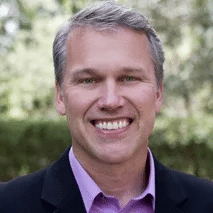Today we are launching a new blog feature in our effort to showcase various voices and best practices from throughout knowledge transfer community. About every other month, I’ll interview a senior business executive—many from Fortune 1000s—to find out how they think about and “do knowledge transfer.” I’ll ask a simple set of five questions that quickly get at helpful information for the community and will allow us to a keep a finger on the pulse of what’s going on out there. In the coming weeks you’ll hear from such executives as Shari Keivit of General Mills, John Sage of the Bill and Melinda Gates Foundation, and more. And, if you’d like to make an interviewee suggestion for this feature (yourself or colleagues), drop me a line.
This week we’ll hear from Christy Kingsbury, Director of Facility Management Solutions, Global Corporate Services for CBRE, Inc. CBRE is a global leader in real estate services and winner of the 2011 REIQ Award for Commercial Agency of the Year. Christy has been working with knowledge transfer solutions at the company for ten years. Here’s what she had to share:
1. What’s your (real) role at CBRE?
Christy Kingsbury: I am the Director of Facility Management Solutions. I perform the integration of facility management and engineering services for new accounts, oversee the corporate on-line technical training program, and facilitate business process development and collaboration among employees. Finally, I partner with corporate subject matter experts to package and evangelize innovative tools and processes to accounts/field personnel.
2. What is the greatest knowledge transfer, talent management, or employee readiness challenge you are, or have been, facing?
CBRE is in the business of managing facilities for large corporations. When CBRE wins a new account, large numbers of people (sometimes hundreds) have to be hired and brought up to speed within a matter of weeks. These new hires have to be brought up to speed on CBRE culture, new client corporate operations, contract requirements, multiple software systems, and multiple business processes. Our clients expect smooth operations immediately after contracts go live.
3. What has been your most successful knowledge transfer strategy to date?
We have been most successful when we have utilized the following tools:
- Orientation: An overview of CBRE, the client being served, the scope of work, the resources available to new hires, and where they fit into the mix.
- Direct Content Delivery: A webcast or in-person content delivery, at transition, with additional “brown bag” sessions to refresh employees on the content.
- On-line Skill-Specific Assessment & Training: Assessment establishes a baseline for our technical folks, and our Learning Management System creates customized curriculum to provide employees with a clear path to improvement.
- Training Plans: The use of training plans by job title—with designated skilled mentors who have been given very clear direction about what content needs to be communicated to their assigned coworkers and new hires. By “very clear,” I mean that we utilize new hire/mentor/manager kick-off meetings to communicate goals, roles, and what’s expected; we then share the training plans with all coworkers acting as expert resources in a given knowledge area (knowledge silo); and we notify these resource persons that the new hires will be reaching out to them to discuss assigned topics.
- Communication/Change Management Plan: A disciplined protocol for rolling out new information and managing change to existing processes and practices.
4. What do you now know about knowledge transfer or talent management that you wish you had known from the beginning?
You don’t need stacks of manuals to train up your workforce—you just need a plan and to leverage your best people.
5. “I would be more effective at knowledge transfer if…”
I had more time to plan.
